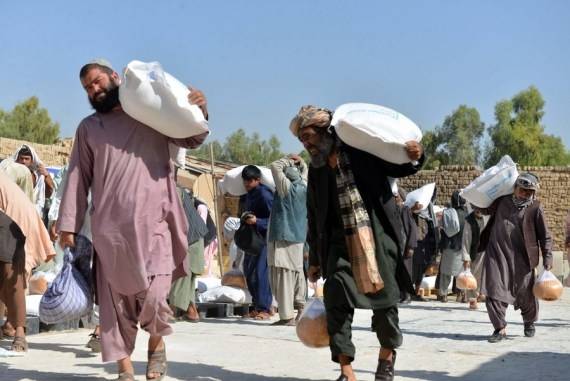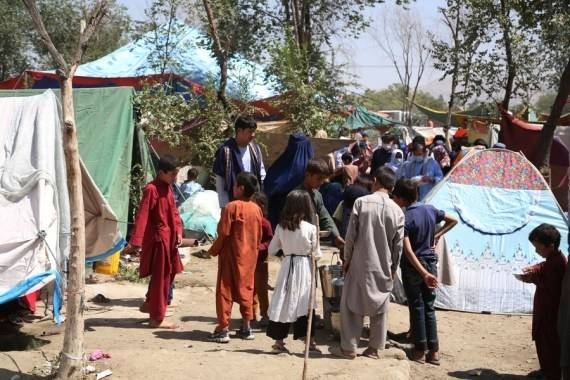
As per UNICEF, 14 million children are facing acute food shortages in Afghanistan while five million others are on the brink of malnutrition….reports Asian Lite News
Director of United Nations World Food Programme David Beasley has called the looming humanitarian crisis in Afghanistan “the worst crisis” on earth, local media reported citing his interview with a broadcasting company.
Khaama Press News Agency reported citing his interview with BBC that 95 per cent of people in Afghanistan do not have enough food and added that 23 million people are on the brink of starvation in the country.
“Imagine if your children or grandchildren are facing death because of the lack of food and you will do everything you can. It happens as the world has 400 trillion dollars assets, it is a big shame for us,” the Afghan media outlet said quoting Beasley.
The international organisations have repeatedly acknowledged that children are the most affected people due to recent political changes in Afghanistan and have called on countries to provide humanitarian aids to Afghan children.

As per UNICEF, 14 million children are facing acute food shortages in Afghanistan while five million others are on the brink of malnutrition.
The collapse of a 20-year government, weak economy, absence of foreign funds, a crippled economy, and the non-recognized government has made it nearly impossible for the humanitarian disaster in Afghanistan to be addressed and tackled, it reported.
These all come as the prices of food, fuel, and firewoods have almost doubled and millions of people have been laid off.
The Afghan people will surely face the worst and biggest humanitarian disaster in the upcoming winter season if the international community does not interfere, according to the Khaama Press.
Refugee spillover
Amid the tense economic and security situation under the Taliban, countries surrounding Afghanistan are under increasing pressure as Afghans continue to flee their homeland to neighbouring states.
Iran and Pakistan have hosted nearly 90 per cent of all Afghan asylum seekers, who have increasingly escaped from their homeland after the Taliban takeover, according to the UN Refugee Agency.
Jan Egeland, secretary-general of the Norwegian Refugee Council humanitarian organization, on Monday, said that the economic collapse and humanitarian crisis in Afghanistan is straining neighbouring nations that already host millions of refugees and migrants
“I’m back in Iran today to meet with a growing number of Afghan refugees, NRC Iran colleagues and our sister organisations. The economic collapse and humanitarian crisis in Afghanistan is straining neighbouring nations that already host millions of refugees and migrants,” Egeland tweeted.

The Taliban came to power in Afghanistan in August. The international community, from several NGOs, has provided assistance to the population battered by the deepening economic and humanitarian crisis in Afghanistan.
In an opinion piece for the Virginia-based Politico, Saad Mohseni, chairman and CEO of Afghanistan’s largest media group Moby Group said that the crises that are consuming Afghanistan threaten to exacerbate the very problems Washington intervened to deal with in the first place.
“Biden (US President) does not have to formally recognize the Taliban, but neither can he wish away their control of the country,” he said.
“Working closely with international partners, the US should ensure aid gets to those who need it most — even if that means dealing with the people they battled for 20 years.”
Warning that Afghanistan’s problems never stay within its landlocked borders, Mohseni said that the desperate economic and humanitarian situation could reignite conflict within the country. (ANI)
ALSO READ: Taliban FM due in Pakistan for Troika+


